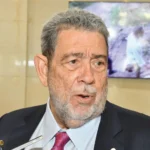HOMESCHOOLING parents, anxious about the provisions in the Jamaica Teaching Council (JTC) Act which mandate that they seek authorisation to teach at home, will soon have some indication of whether they will be granted exemption from that requirement.
The joint select committee of Parliament, which is reviewing the Jamaica Teaching Bill 2022, is to turn its attention to those provisions at its meeting set for Thursday at Gordon House.
In a submission to the committee months ago, parents who homeschool their children mounted strong arguments for exemption from the Bill when teaching their own children.
“The Bill is about the practice of a teacher. Wherever the teacher practises, it has implications for the profession. It doesn’t matter if it is in a public school, a private school, or homeschool, once the person is practising as a teacher then that person is governed by the profession — it’s a practice, it’s not the programme,” head of the JTC, Dr Winsome Gordon stated at Wednesday’s meeting of the committee.
Under the proposed legislation at present like teachers in formal institutions, people who teach in an approved home education programme, including a parent who teaches their child — and no other child — must apply to the JTC for authorisation to teach.
Member of Parliament for St Catherine South Eastern Robert Miller registered his disagreement with exempting homeschoolers from the Bill.
“I’m not against homeschooling but I’m of the belief that a trained teacher should be teaching those children, and someone who is registered as well,” said Miller.
Last July the Jamaica Association of Homeschoolers said the functions and approach of homeschool parents and guardians could not be compared to that of a trained teacher in a standard educational setting.
“The practice of homeschooling should therefore not be included in a legislative document that seeks to govern and regulate the profession of teaching. In fact, we are, in practice, more akin to the description outlined in Section 4 (2), [which exempts from the scope of the Bill people acting in a voluntary capacity without payment], except that the homeschool space is in no way ad hoc.
“As persons who provide instruction to their own children, without a desire to earn from doing so or to enter into the professional realm of teaching generally, homeschoolers should not be grouped with professionals in teaching,” the Shane Panton-headed group argued.
Also, the homeschoolers said a Bill that mandates parents to be authorised to instruct their own children and to pay a fee for authorisation to instruct or manage the instruction of their own children is unreasonable, and contravenes the rights of parents.
The association argued also that the provisions in the Bill which seek to control homeschooling are redundant as a regulatory process already exists at the Ministry of Education’s Independent Schools Unit (ISU), which expects parents to register and submit the curriculum being used, to be reviewed.
The group recommended that focus be placed on making improvements in the operational and administrative functions of the ISU, rather than create a new regulatory system that in principle does not relate to homeschooling.
The committee is scheduled to sit next on February 23.










